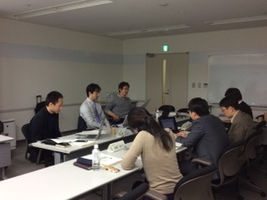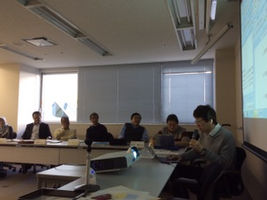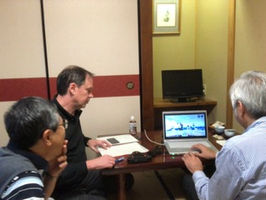OUTLINE of ACTIVITIES
Experts in regional hubs jointly develop test items, including constructed response tasks (essay problems), multiple choice items, and scoring guides, and submit proposals to the national test item development committee (as shown below). The national test item development committee reviews the proposal, makes suggestions for content improvement and calibration of test item difficulty level. The proposed test items will be used in trial tests on students to assess content validity through small scale implementation in universities and revised based on the test results. Nest, the revised test item will be tested at a large scale at many institutions, jointly scored, and analyzed for feedback that aims to facilitate universities’ educational improvement. Methods and tips for test item development will be disseminated through the publication of guidelines and briefing at universities and academic associations through regular committee meetings.

Schematic of Tuning Test Item Bank Activities
BACK GROUND
The Tuning Test Item Bank project began in 2014 as the succession of the Organization for Economic Cooperation and Development (OECD) Assessment of Higher Education Learning Outcomes (AHELO) Feasibility Study.
The OECD-AHELO project was a national initiative sponsored by the Japanese ministry of education (MEXT) as part of the multinational project hosted by OECD. The project aimed to “test the scientific and practical feasibility of assessing what higher education students know and can do at graduation, across diverse national, cultural, linguistic and institutional contexts.” The National Institute for Educational Policy Research participated in the international consortium for the development of test instruments in engineering and took on the role of the national center, coordinating the implementation of test instruments within Japan.
To see the reports, click below;







